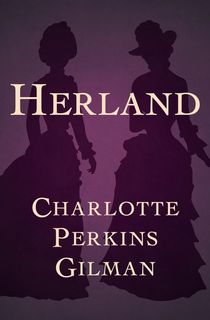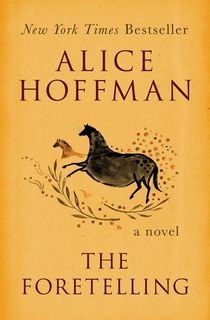Imagine a world free of all men. Either they’ve been killed off by a fatal virus or abruptly sent off to inhabit their own planet. Now, think of the women. When left to their own devices, there's a chance for a fresh start. They can create a more peaceful society where resources are shared, children are protected, the economy is sustainable, and the planet is valued.
Women-only utopias are a classic subgenre of science fiction and a staple in feminist literature. They are oftentimes thought-provoking, imagined worlds that explore gender roles and challenge societal norms. This concept of single-gender utopia owes much of its tradition to Charlotte Perkins Gilman's Herland, which was published in 1915. The novel serves as a detailed exploration of a perfect society with all female inhabitants. Revolutionary for its time, Herland has inspired countless single-sex utopias and remains relevant even today.
So, in honor of Women’s History Month (and all women everywhere all the time), here are the best all-female utopia stories, filled with peace, compassion, and innovation.
Now to be clear, these are not all “utopia novels” from start to finish, as they need some conflict to ramp up the plot. But these books do offer a glimpse into worlds with alternative visions of society — often fairer and more equitable than the one we have.

Herland
Published in 1915, this is a classic old-school feminist utopia novel. Herland follows three amateur sociology bros and their quest to find a hidden all-female society. The trio eventually comes across Herland, a secluded mountain community where women have achieved a state of perfect peace and equality. In this land, women have learned to coexist harmoniously with one another and nature. They have also found a way to reproduce asexually.
Upon their discovery, the three male explorers must re-examine their assumptions about women's societal roles and question whether a male-driven society is truly the best option.

A Door Into Ocean
Joan Slonczewski’s reputation as an essential science fiction writer is largely accredited to this novel. It’s groundbreaking in both feminist science fiction and world-building science fiction. Published in 1986, it still inspires many sci-fi writers today.
The story revolves around the Sharers of Shora, a society of women on a remote moon in the distant future. These women are pacifists who possess advanced knowledge in biological sciences and reproduce through parthenogenesis, meaning without any male involvement. The novel explores the conflicts that arise when a neighboring civilization decides to exploit the ocean world of the Sharers and sends in an army to achieve their goals.

Ammonite
After a deadly virus decimates the male population, planet Jeep finds a way to prosper as an all-female colony, detaching itself from the rest of humanity — that is, until a company arrives to exploit its natural resources. However, their plans are quickly derailed as they fight for their lives trying to escape, and they end up abandoning some of their employees in the process.
Now, the stranded employees must face the daunting challenge of adapting to a new way of life if they hope to survive. As they struggle to find their place among the natives, they unravel the secrets that have allowed the Jeep women to survive and thrive.

The Female Man
Joanna Russ's The Female Man is a highly influential novel that has left a lasting impact on science fiction. It has been included in the list of ten essential works of science fiction and has even influenced renowned sci-fi author William Gibson (perhaps best known for Neuromancer).
The novel tells a suspenseful and darkly witty story about four alternative selves — Jeannine, Janet, Joanna, and Jael — who are all from vastly different realities. Joanna comes from a world that resembles our own, Jeannine belongs to a world where the Great Depression never ended, Jael's reality is a horrifying dystopia where men and women engage in a physical battle of the sexes, and Janet belongs to Whileaway, a serene utopia with an all-female society.

The Foretelling
Rain is a girl destined for greatness, born into a tribe of female warriors in a time of bloodshed and sorrow. Her mother, the queen, rejects her, but Rain learns from her Amazon sisters and becomes a skilled fighter, hoping to win her mother's love and take the throne.
However, a vision of a black horse foretells death, and as battles continue, Rain dreams of a better future for her tribe: one of peace, mercy, and love. Can she teach her sisters to embrace a new way of life before it's too late?

The Legend of Wonder Woman
Perhaps the most iconic female utopia is Wonder Woman’s island of Themyscira, or Paradise Island, which is home to the Amazon warriors.
The Legend of Wonder Woman is a coming-of-age story that follows Diana's (Wonder Woman) journey to discover her identity and purpose. Born to Hippolyta, the Queen of the Amazons, Diana is expected to live a peaceful life and take over as ruler one day. However, Diana senses she has another purpose in life and secretly begins warrior training.
Her training leads her to Earth, where she becomes a hero during World War II, fighting and using her lasso to show the truth to her enemies. Is she ready to give up her serene life forever to continue saving Earth’s people?

Sultana's Dream
Published in 1905, Sultana's Dream is not strictly a women-only utopia, but it certainly ranks among the first feminist utopias. It was originally published in Indian Ladies Magazine, the first English-language periodical edited by and targeted for Indian women.
Like the periodical, the story was groundbreaking. It follows Sultana, who enters a dream city that rejects violence and warfare. This utopian society is governed by women, while men are happily confined to domestic duties. The queen of this kingdom reveals to Sultana the strategies they use to establish and maintain peace against the traditionally aggressive tendencies of men. Sultana questions her life back in her male-driven society and wonders if this dream world could become a reality.

The Demeter Flower
The hidden valley of Demeter in California is home to a utopian civilization of women who have survived the collapse of patriarchal society by discovering the secret of parthenogenesis. They use the dried and brewed Demeter Flower as a tea to induce pregnancy and give birth to female offspring, ensuring the continuation of their society.
Like Charlotte Perkins Gilman's Herland, women live completely free of all male interaction. Singer explores the conflict and struggle that arises when two outsiders — a man and a woman from a patriarchal culture outside the village — disrupt the peace of the utopia.






